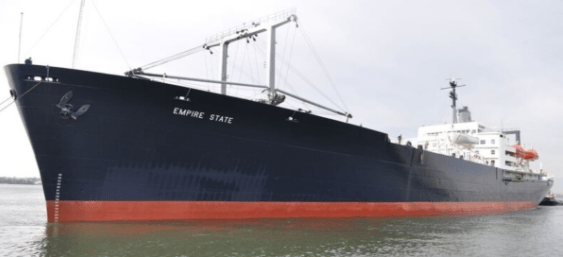The United States applies restrictions on cabotage maritime transportation services for passengers and cargo, in accordance with cabotage laws.
Under Section 27 of the Merchant Marine Act of 1920, commonly known as the Jones Act, the provision of cargo services between two points in the United States (including its territories and possessions), either directly or through a foreign port, is reserved to vessels registered and built (or repaired) in the United States that are at least 75% owned by a U.S. company and on which 100% of the officers and 75% of the crew are U.S. citizens.
In general, the same requirements apply to domestic passenger service under the Passenger Vessel Service Act of 1886.
According to the World Trade Organization (WTO), as of October 2021, there were 96 privately owned, self-propelled, ocean-going cargo vessels of at least 1,000 gross tons and a total deadweight of 4.8 billion tons in the United States eligible to provide service under the Jones Act.
Maritime transportation
The volume of cargo transported on Jones Act-covered routes, including coastal, intercoastal, Great Lakes, and inland water transportation, was 3,467.51 million gross tons, representing 47.1% of U.S. domestic cargo shipments by all modes of transportation.
Although the Jones Act limits cargo services to companies using U.S.-built vessels and employing U.S. seamen, it does not prevent foreign companies from establishing U.S. shipping companies in the United States, provided their U.S. subsidiaries meet the statutory requirements for citizenship, crewing, and operation of U.S.-built vessels.
Foreign-owned U.S. companies may also own and operate U.S.-flag vessels in their international services.
CBP is the agency responsible for enforcing coastal laws, including the Jones Act, and can impose fines and penalties on violators.

